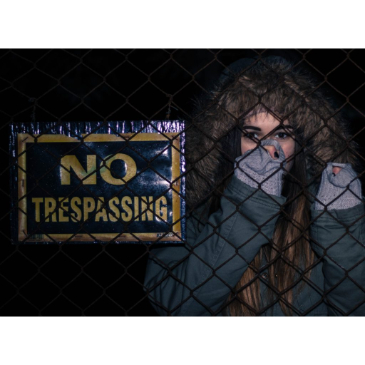Trespassing is an umbrella term that covers a range of actions – from walking on a riverbank through private land when fishing, to entering a home with the intent to commit a violent crime. Colorado has three degrees of criminal trespassing charges.
Criminal Trespass in Colorado
 First Degree Trespassing is to enter or remain in someone else’s home or vehicle without their consent with the intent to commit a crime. Entering a residential dwelling as part of burglary or assault, or entering a car to steal packages, would incur this kind of trespassing charge.
First Degree Trespassing is to enter or remain in someone else’s home or vehicle without their consent with the intent to commit a crime. Entering a residential dwelling as part of burglary or assault, or entering a car to steal packages, would incur this kind of trespassing charge.
Second Degree Trespassing is to enter or remain a nonresidential building, fenced area, or any space that is clearly designed to exclude outsiders. This also includes entering a car, without the intent of committing a crime. This charge is often used when businesses have asked someone to leave after a fight or other disruption.
Third degree trespassing is to enter land that is owned by another person. These are the charges frequently used when a person has “taken a shortcut” across someone else’s land without having to go over a fence or other barrier.
Civil Trespass
Property owners can also seek damages in civil court for trespassing, even if criminal charges are not filed. Civil trespassing complaints do not have to include any property damage or demonstrate that the trespasser committed a crime on the property. Further, anything which prevents the owner from the use or enjoyment of their property can be considered “trespassing” including smoke or loud noises from adjoining properties. Civil trespass damages can include property damage, emotional distress, and loss of revenue.
Reasons that Justify Trespass
Types of trespassing that could be legally justified include:
- Consent of the Owner – This includes not only the knowledge of a specific individual’s presence and express consent for them to be there but also actions or customs that establish implied consent. If a property owner has allowed access to their property over an extended period and made no efforts to restrict entry.
- To prevent personal harm – To save a life or avoid serious physical harm you may enter another person’s property.
- To prevent public harm – To prevent a fire, property damage, or avert a disaster you may enter a property.
- As public agent — A police officer, firefighter, gas, electric, or water company representative may enter a property.
- To pursue a legal right – To retrieve your own personal property, but you should have the consent of the property owner.
If You Are Facing Trespassing Charges, Seek Legal Counsel
First Degree Criminal Trespassing of an occupied dwelling is a class six felony that can include a fine of up to $100,000 and 18 months in prison. The range of trespass charges is large and justifications that can mitigate or eliminate a trespass charge can also be interpreted in multiple ways. If you have been charged with trespassing, you need to contact a Colorado Springs criminal attorney who understands the nuance of Colorado law and can give you the best possible representation. Call The Bussey Law Firm, P.C. at (719) 475-2555. Free consultations are available.
